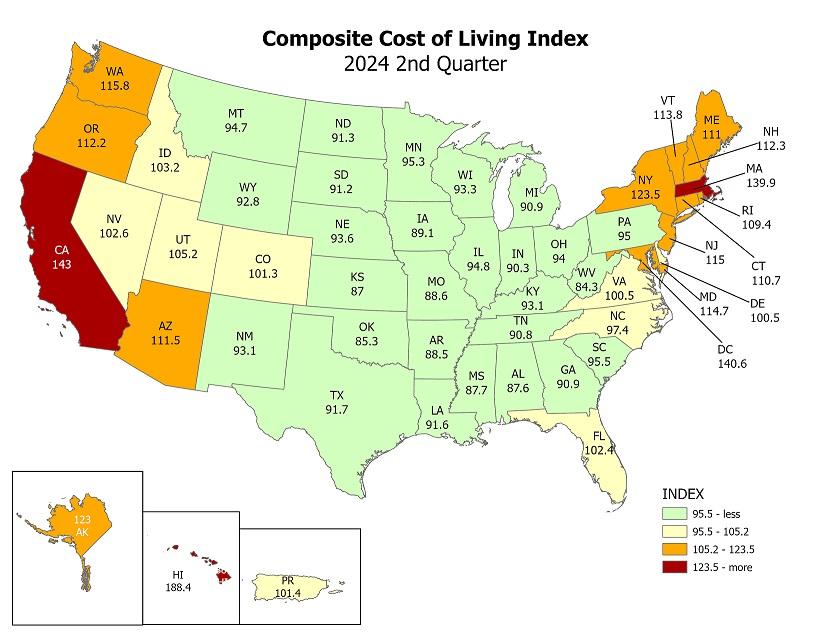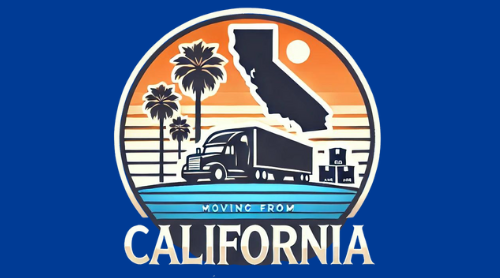Moving From California To Wisconsin
Are you considering a cross-country move from California to Wisconsin? This decision can be both exciting and intimidating, especially when leaving behind the Golden State's sun-kissed beaches and laid-back vibe for the Badger State's lush forests and frozen lakes. As you prepare to trade in your flip flops for snow boots, it's essential to understand the significant differences between these two states. From cost of living and job opportunities to culture and lifestyle, this article will guide you through the key factors to consider when making the move from California to Wisconsin.

- Adjusting to the Midwest: A Guide to Moving from California to Wisconsin
- Why are Californians moving to Wisconsin?
- How much would it cost to move from California to Wisconsin?
- Is it cheaper to live in Wisconsin or California?
- Is moving to Wisconsin a good idea?
- FAQ
- What are the main differences in cost of living between California and Wisconsin?
- How will the climate and weather in Wisconsin affect my daily life?
- What are the job market and economy like in Wisconsin compared to California?
- What are some popular neighborhoods and cities in Wisconsin for California transplants?
Adjusting to the Midwest: A Guide to Moving from California to Wisconsin
Moving from California to Wisconsin can be a significant change, especially for those who are accustomed to the Golden State's sunny weather and laid-back lifestyle. Wisconsin, on the other hand, offers a more temperate climate and a slower pace of life. Here are some key factors to consider when making the transition:
Climate and Weather
One of the most significant differences between California and Wisconsin is the climate. California is known for its mild and sunny weather year-round, while Wisconsin experiences a more traditional Midwestern climate with cold winters and warm summers. Be prepared for subzero temperatures and snowfall in the winter, and mild temperatures in the spring and fall. Pack warm clothing, including a heavy coat, gloves, and hats, to brave the cold winters.
Cost of Living
The cost of living in Wisconsin is generally lower than in California. Housing costs, in particular, are significantly lower in Wisconsin, with the median home price being around $170,000 compared to California's $650,000. However, salaries are also lower in Wisconsin, so it's essential to factor in the overall cost of living when planning your move.
Culture Shock
California and Wisconsin have distinct cultural identities, and moving from one to the other can be a significant adjustment. Wisconsin is known for its strong sense of community and friendly residents, while California is often associated with a more laid-back and individualistic lifestyle. Be prepared to adapt to a new pace of life and cultural norms, and don't be surprised if you're greeted with a warm hello from strangers on the street.
Job Opportunities
Wisconsin has a strong economy, with major industries in manufacturing, healthcare, and agriculture. However, the job market is smaller than in California, and wages are generally lower. Research job opportunities in your field and consider networking before making the move.
Things to Do and See
Wisconsin may not have the same level of diversity and excitement as California, but it has its own unique charm and attractions. From the scenic beauty of the Wisconsin Dells to the vibrant city life of Milwaukee, there's plenty to explore in the Badger State. Be sure to try some of Wisconsin's famous cheese and craft beer, and take advantage of the many outdoor activities available, such as hiking, fishing, and skiing.
| Category | California | Wisconsin |
|---|---|---|
| Climate | Mild and sunny year-round | Cold winters and warm summers |
| Cost of Living | High | Low |
| Culture | Laid-back and individualistic | Friendly and community-oriented |
| Job Opportunities | High demand and high salaries | Lower demand and lower salaries |
Why are Californians moving to Wisconsin?

Californians are moving to Wisconsin for a variety of reasons, including a lower cost of living, a more relaxed pace of life, and access to outdoor activities. Wisconsin offers a unique blend of urban and rural living, with cities like Madison and Milwaukee providing cultural and economic opportunities, while the state's rural areas offer a more peaceful and natural way of life.
Lower Cost of Living
One of the main reasons Californians are moving to Wisconsin is the significant difference in cost of living between the two states. Here are some key factors contributing to the lower cost of living in Wisconsin:
- Housing costs: The median home price in Wisconsin is around $190,000, compared to over $650,000 in California.
- Taxes: Wisconsin has a lower state income tax rate, with a top rate of 7.65%, compared to California's top rate of 13.3%.
- Food and transportation: The cost of food, transportation, and other living expenses is generally lower in Wisconsin than in California.
Job Opportunities and Economy
Wisconsin's economy is diversifying, with major industries including healthcare, technology, and manufacturing. Californians are drawn to Wisconsin's strong job market, with many companies offering competitive salaries and benefits. Here are some key factors contributing to Wisconsin's economic appeal:
- Major employers: Companies like Epic Systems, Johnson & Johnson, and Harley-Davidson are headquartered in Wisconsin, providing a range of job opportunities.
- Start-up friendly: Wisconsin has a growing start-up scene, with many resources available for entrepreneurs and small business owners.
- Skilled workforce: Wisconsin has a highly educated and skilled workforce, with many top-ranked universities and colleges.
Quality of Life and Outdoor Activities
Wisconsin offers a unique quality of life, with a strong sense of community and a wide range of outdoor activities. Here are some key factors contributing to Wisconsin's appeal:
- Outdoor recreation: Wisconsin has over 15,000 lakes, numerous state parks, and endless opportunities for hiking, biking, and other outdoor activities.
- Cultural attractions: Wisconsin has a rich cultural scene, with numerous museums, theaters, and music venues.
- Community events: Wisconsin is known for its community events, including festivals, farmers' markets, and small-town celebrations.
How much would it cost to move from California to Wisconsin?
The cost of moving from California to Wisconsin can vary greatly depending on several factors such as the distance, weight, and type of items being moved, as well as the services required.
Estimating Moving Costs
To estimate the moving costs, it's essential to consider the following factors:
- Distance: The farther you move, the more you'll pay. California to Wisconsin is approximately 2,000 miles, which falls under the long-distance moving category.
- Weight and volume: The more items you have, the heavier and bulkier the shipment will be, resulting in higher costs.
- Services required: Do you need packing services, storage, or specialty item handling? These additional services will increase the overall cost.
Moving Company Quotes
To get a more accurate estimate, it's best to obtain quotes from reputable moving companies. Here's a rough breakdown of what you might expect:
- Average moving company quote for a 1-bedroom apartment: $2,000 - $3,000
- Average moving company quote for a 2-bedroom apartment: $3,000 - $5,000
- Average moving company quote for a 3-bedroom apartment: $5,000 - $7,000
DIY Moving Costs
If you're considering a DIY move, here are some estimated costs to keep in mind:
- Rental truck (20-foot): $2,000 - $3,000, including gas and tolls
- Portable storage container (20-foot): $2,500 - $4,000, including delivery and pickup
- Packing supplies (boxes, tape, bubble wrap, etc.): $500 - $1,000
Is it cheaper to live in Wisconsin or California?

The cost of living in Wisconsin versus California is a significant consideration for individuals planning to relocate to either state. Wisconsin, located in the Midwest, is known for its affordable lifestyle, while California, on the West Coast, is famous for its high cost of living. Here's a breakdown of the costs:
Housing Costs
When it comes to housing, Wisconsin is significantly cheaper than California. The median home price in Wisconsin is around $180,000, while in California, it's around $650,000. Rent is also more affordable in Wisconsin, with the average rent for a one-bedroom apartment being around $900 per month, compared to $2,000 per month in California.
Taxes
Taxes are another area where Wisconsin is more budget-friendly. Wisconsin has a state income tax rate of around 4.4%, while California's state income tax rate is around 9.3%. Additionally, Wisconsin has a lower sales tax rate of 5%, compared to California's 7.25%.
Lifestyle Costs
When it comes to lifestyle costs, such as food, transportation, and utilities, Wisconsin is also generally cheaper. Here are some examples:
- Gas prices: Wisconsin's average gas price is around $2.50 per gallon, while California's is around $3.50 per gallon.
<liFood: Eating out in Wisconsin is around 20% cheaper than in California, and grocery prices are around 15% lower.
<liUtilities: The cost of utilities, such as electricity and water, is around 10% lower in Wisconsin compared to California.
Overall, Wisconsin is a more affordable state to live in compared to California, with lower housing costs, taxes, and lifestyle expenses. However, it's essential to consider individual circumstances and lifestyle choices when making a decision about which state to call home.
Is moving to Wisconsin a good idea?

Pros of Moving to Wisconsin
Wisconsin is a great state to consider moving to, with various benefits that can enhance your quality of life. Here are some of the advantages of relocating to Wisconsin:
- Natural Beauty: Wisconsin is known for its stunning natural scenery, with over 15,000 lakes, numerous state parks, and the scenic Mississippi River. Outdoor enthusiasts will love the endless opportunities for hiking, fishing, and camping.
- Affordable Cost of Living: Compared to other states, Wisconsin has a relatively low cost of living. Housing, food, and transportation costs are lower, making it an ideal place for families and individuals looking to save money.
- Strong Economy: Wisconsin has a robust economy, with major industries in manufacturing, healthcare, and agriculture. The state is also home to several major companies, including Harley-Davidson and Johnson Controls.
Cons of Moving to Wisconsin
While Wisconsin has its advantages, there are also some potential drawbacks to consider:
- Harsh Winters: Wisconsin is known for its cold and snowy winters, which can be challenging for some people. The state experiences an average of 40 inches of snowfall per year, and temperatures can drop as low as -20°F (-29°C) in winter.
- Limited Job Opportunities in Certain Fields: While Wisconsin has a strong economy, job opportunities may be limited in certain fields, such as technology and finance. Major cities like Milwaukee and Madison may have more job opportunities, but rural areas may have fewer options.
- Summer Humidity: Wisconsin's continental climate means that summers can be hot and humid, with temperatures often reaching the 90s (30s Celsius) in July and August.
Things to Consider Before Moving to Wisconsin
Before making the decision to move to Wisconsin, here are some essential factors to consider:
- Job Opportunities: Research the job market in your field and ensure that there are viable opportunities in the area you're interested in.
- Housing Costs: Compare housing costs in different areas of the state to find a location that fits your budget.
- <strong_Community and Culture: Consider the type of community and culture you're looking for in a place to live. Wisconsin has a strong sense of community, but it may not be the best fit for everyone.
FAQ
What are the main differences in cost of living between California and Wisconsin?
The cost of living in Wisconsin is significantly lower compared to California. Housing costs, in particular, are much more affordable in Wisconsin, with the median home price being around $180,000, which is less than half of the median home price in California. Additionally, taxes in Wisconsin are lower, with a state income tax rate of 4.4% compared to California's 9.3%. Food prices and transportation costs are also lower in Wisconsin, making it an attractive option for those looking to relocate from California.
How will the climate and weather in Wisconsin affect my daily life?
Wisconsin's climate is vastly different from California's, with cold winters and warm summers. Be prepared for snowfall and freezing temperatures during the winter months, with average temperatures ranging from 14°F to 28°F (-10°C to -2°C). However, the state also experiences a beautiful spring and fall, with mild temperatures and picturesque landscapes. It's essential to invest in warm clothing and gear, such as a good coat, gloves, and boots, to brave the winter weather. Additionally, be prepared for potential road closures and winter driving challenges.
What are the job market and economy like in Wisconsin compared to California?
While California is known for its thriving tech industry, Wisconsin has a diverse economy with major industries in manufacturing, agriculture, and healthcare. The state is home to several major companies, including Harley-Davidson, Johnson & Johnson, and Kohl's. Additionally, Wisconsin has a lower unemployment rate compared to California, with a rate of around 2.9% compared to California's 4.3%. However, salaries in Wisconsin are generally lower, with a median household income of around $59,000 compared to California's $71,000.
What are some popular neighborhoods and cities in Wisconsin for California transplants?
Wisconsin has several cities and neighborhoods that are popular among California transplants. Madison, the state capital, is a favorite among those who value a small-town feel with access to cultural attractions and outdoor activities. Milwaukee, the largest city in Wisconsin, offers a more urban lifestyle with a vibrant art scene and craft brewery culture. Other popular areas include Lake Geneva, a picturesque lake town with a strong tourist economy, and Wauwatosa, a suburb of Milwaukee with a mix of urban and suburban living. When choosing a neighborhood, consider factors such as commute time, school districts, and community amenities.
